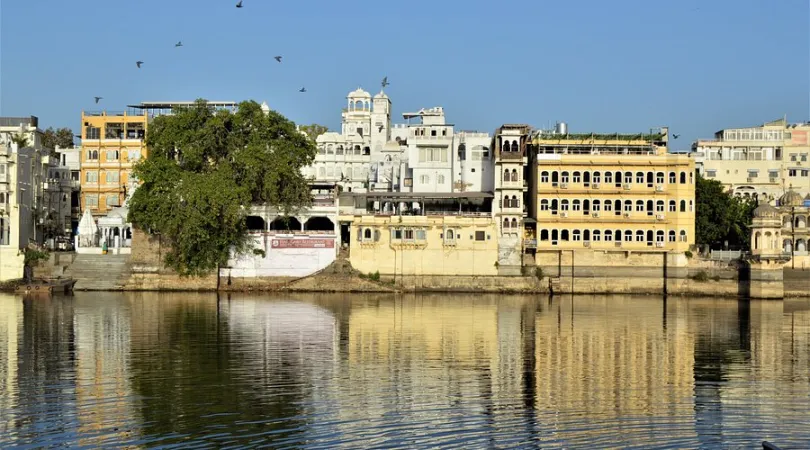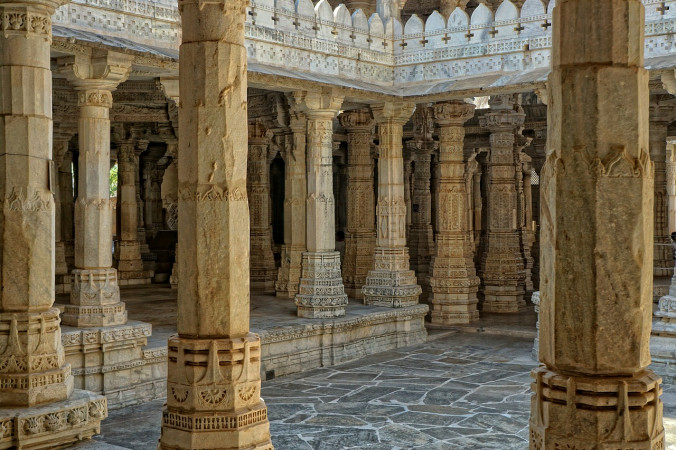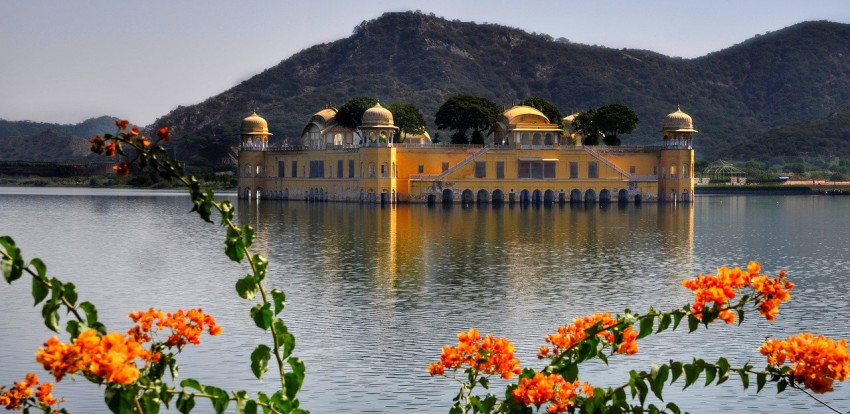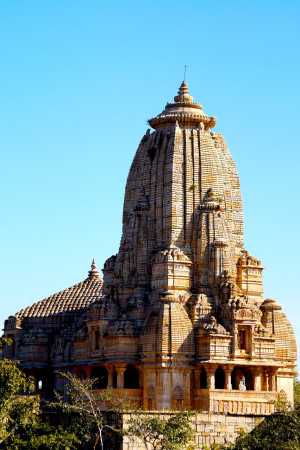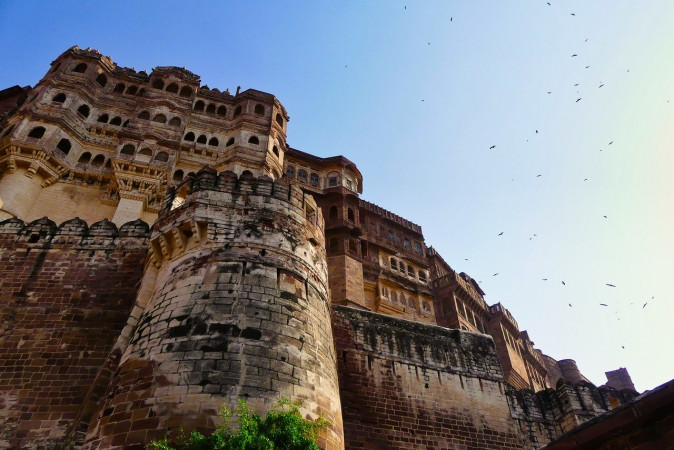Hi User
Navigation
Kumbhalgarh Wildlife Sanctuary
Rajsamand . Ayodhya . Uttar Pradesh . India
Duration
2 to 4 Days
2 to 4 Days
Best time to visit
Oct-Mar
Oct-Mar
Theme
Wildlife
Wildlife
Kumbhalgarh Wildlife Sanctuary Travel Guide
Kumbhalgarh Wildlife Sanctuary, located in the Aravalli Range of Rajasthan, India, is a haven for nature lovers and wildlife enthusiasts. The sanctuary is famous for its diverse flora and fauna, as well as the historic Kumbhalgarh Fort, which is a UNESCO World Heritage Site. The sanctuary's rugged terrain, lush forests, and ancient ruins make it a unique destination for travelers seeking adventure and history in one place.Top Attractions in Kumbhalgarh Wildlife Sanctuary
- Wildlife Safari to spot leopards, wolves, and various bird species
- Exploring the Kumbhalgarh Fort with its massive walls and stunning architecture
- Trekking and nature walks through the sanctuary's scenic trails
- Visiting the Badal Mahal, a palace within the fort offering panoramic views
- Experiencing the traditional culture of the local villages around the sanctuary
Kumbhalgarh Wildlife Sanctuary is Famous for
Its diverse wildlife, including the elusive leopards, and the majestic Kumbhalgarh Fort.Top Attractions in Kumbhalgarh Wildlife Sanctuary
- Wildlife Safari to spot leopards, wolves, and various bird species
- Exploring the Kumbhalgarh Fort with its massive walls and stunning architecture
- Trekking and nature walks through the sanctuary's scenic trails
- Visiting the Badal Mahal, a palace within the fort offering panoramic views
- Experiencing the traditional culture of the local villages around the sanctuary
What's Great about Travelling to Kumbhalgarh Wildlife Sanctuary?
- Perfect for nature enthusiasts and wildlife lovers
- Rich history and cultural heritage to explore
- Opportunities for adventure activities like trekking and safaris
What's Not So Great about Travelling to Kumbhalgarh Wildlife Sanctuary?
- Limited accommodation options within the sanctuary
- Rough terrain may not be suitable for all travelers
- Weather can be extreme during certain seasons
Travel Tips for Kumbhalgarh Wildlife Sanctuary
- Obtain necessary permits for wildlife safaris in advance
- Wear comfortable clothing and sturdy footwear for outdoor activities
- Respect the local culture and wildlife while exploring the sanctuary
Important Kumbhalgarh Wildlife Sanctuary trip information
- Ideal Duration: 2-3 days to explore the sanctuary and fort
- Best Time to Visit: October to March for pleasant weather
- Nearby Airports and Railway Stations: The nearest airport is Udaipur Airport, and the nearest railway station is Falna Railway Station
Popular Kumbhalgarh Wildlife Sanctuary Tour Packages From:
Kumbhalgarh Wildlife Sanctuary Tour Packages From Delhi Kumbhalgarh Wildlife Sanctuary Tour Packages From Mumbai Kumbhalgarh Wildlife Sanctuary Tour Packages From Bangalore Kumbhalgarh Wildlife Sanctuary Tour Packages From Kolkata Kumbhalgarh Wildlife Sanctuary Tour Packages From Chennai Kumbhalgarh Wildlife Sanctuary Tour Packages From Hyderabad Kumbhalgarh Wildlife Sanctuary Tour Packages From Pune
Budget Kumbhalgarh Wildlife Sanctuary Tour Packages Under:
Kumbhalgarh Wildlife Sanctuary Tour Packages Under ₹5,000 Kumbhalgarh Wildlife Sanctuary Tour Packages Under ₹10,000 Kumbhalgarh Wildlife Sanctuary Tour Packages Under ₹20,000 Kumbhalgarh Wildlife Sanctuary Tour Packages Under ₹50,000 Kumbhalgarh Wildlife Sanctuary Tour Packages Under ₹1,00,000 Kumbhalgarh Wildlife Sanctuary Tour Packages Under ₹1,50,000
3 days & 2 nights
5 (37)
3D2N Udaipur Tour Package
1D Kumbhalgarh • 2D Udaipur
Tour package by Traowl India
Verified
INR 6,249 SAVE INR 1,250
INR 4,999 /Adult
3 days & 2 nights
5 (37)
3D2N Udaipur Tour Package
1D Kumbhalgarh • 2D Udaipur
Tour package by Traowl India
Verified
INR 8,571 SAVE INR 2,571
INR 6,000 /Adult
4 days & 3 nights
4.3 (400)
3N/4D Kumbalgarh & Ranakpur Tour Package with Flights
Kumbhalgarh
Tour package by TripClap
Verified Trustseal
INR 28,728 SAVE INR 7,182
INR 21,546 /Adult
4 days & 3 nights
4.3 (400)
3N/4D Kumbalgarh Tour Package
Kumbhalgarh
Tour package by TripClap
Verified Trustseal
INR 24,952 SAVE INR 6,238
INR 18,714 /Adult
5 days & 4 nights
4.3 (400)
4N/5D Udaipur, Kumbalgarh & Chittorgarh Tour Package with Flights
1D Chittaurgarh • 1D Kumbhalgarh • 3D Udaipur
Tour package by TripClap
Verified Trustseal
INR 21,025 /Adult
3 days & 2 nights
4.3 (400)
2N/3D Kumbalgarh Tour Package with Flights
Kumbhalgarh
Tour package by TripClap
Verified Trustseal
INR 19,154 SAVE INR 5,746
INR 13,408 /Adult
FAQ's on Kumbhalgarh Wildlife Sanctuary
Q1: What is the best time to visit Kumbhalgarh Wildlife Sanctuary?
The best time to visit Kumbhalgarh Wildlife Sanctuary is during the winter months from November to February when the weather is pleasant for exploring the sanctuary. This time also coincides with the peak tourist season, offering opportunities to witness wildlife and enjoy outdoor activities without the scorching heat of summer.
Q2: Do I need a visa to travel to Kumbhalgarh Wildlife Sanctuary?
As Kumbhalgarh Wildlife Sanctuary is located in India, most tourists will need a valid visa to enter the country. It is recommended to check with the Indian embassy or consulate in your country for specific visa requirements. Some nationalities may be eligible for e-Visa facilities, but it is essential to confirm the latest regulations before traveling.
Q3: What are the must-visit attractions in Kumbhalgarh Wildlife Sanctuary?
Some of the must-visit attractions in Kumbhalgarh Wildlife Sanctuary include the Kumbhalgarh Fort, Badal Mahal, Vedi Temple, and of course, the diverse wildlife within the sanctuary. Visitors can also explore the scenic beauty of the Aravalli Range and enjoy activities like wildlife safaris and nature walks.
Q4: Is Kumbhalgarh Wildlife Sanctuary a safe place to travel?
Kumbhalgarh Wildlife Sanctuary is generally considered safe for travelers. However, it is advisable to follow standard safety precautions such as avoiding isolated areas after dark, securing your belongings, and being aware of your surroundings. It is also recommended to stay updated on any local advisories or guidelines during your visit.
Q5: What is the local currency in Kumbhalgarh Wildlife Sanctuary and can I use credit cards?
The local currency in Kumbhalgarh Wildlife Sanctuary is the Indian Rupee (INR). While credit cards are widely accepted in hotels, restaurants, and larger establishments, it is advisable to carry cash for smaller vendors and local markets. ATMs are available in nearby towns for convenient access to currency.
Q6: What is the local cuisine like in Kumbhalgarh Wildlife Sanctuary?
The local cuisine in Kumbhalgarh Wildlife Sanctuary offers a variety of flavors and dishes typical of Rajasthani cuisine. Visitors can enjoy traditional dishes like Dal Baati Churma, Gatte ki Sabzi, and Ker Sangri. Vegetarian options are prevalent, and the cuisine reflects the vibrant culture and culinary heritage of the region.
Q7: What transportation options are available in Kumbhalgarh Wildlife Sanctuary?
Transportation options in Kumbhalgarh Wildlife Sanctuary include local buses, taxis, and rental cars for convenient travel within the region. Visitors can also opt for guided tours that include transportation to and from the sanctuary. It is advisable to plan transportation in advance to explore the area comfortably.
Q8: Are there any cultural norms or etiquette I should be aware of when visiting Kumbhalgarh Wildlife Sanctuary?
When visiting Kumbhalgarh Wildlife Sanctuary, it is essential to respect local customs and traditions. Dress modestly, especially when visiting religious sites or interacting with locals. It is customary to remove shoes before entering temples and to seek permission before taking photographs of people. Embracing the local culture with an open mind and showing courtesy towards residents will enhance your travel experience.
Q9: I am a travel agent. How can I buy travel leads of Kumbhalgarh Wildlife Sanctuary?
Register yourself as a travel agent at agents.tripclap.com and then you can buy travel leads to Kumbhalgarh Wildlife Sanctuary once your account is approved. For more details contact our support team at +91-8069186564 or support@tripclap.com
Certified
We accept (more)
Members of
Media Recognition
Trusted Partners
Award
Copyrights © TripClap. All Rights Reserved

